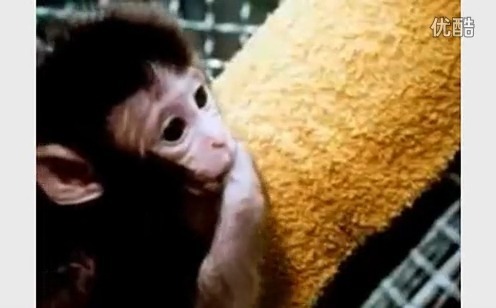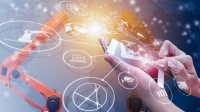Emotional needs that often make us feel vulnerable and vulnerable to being fulfilled. The intense conflict of avoidance leads us to expect emotionally non-human substitutes that both satisfy emotional needs and avoid emotional injury.
The rise of the pet economy is one of the substitutes for human emotional needs. Why cats and dogs are liked, one is emotional interaction with people, and the other is petting.
If you are in a bad mood, you need to talk to someone about why it is important to be understood. If you are not understood, you will not want to speak, because to satisfy your emotional needs, you need to be empathized. Simply put, you need to feel understood.

Still face experiment
Babies need a mother’s response to be happy, and without a mother’s interactive response, they are in a bad mood.
Humans are social animals, and evolution determines the satisfaction of human emotional needs and requires interactive responses. Attachment theory in psychology emphasizes the interactive relationship connection, which brings about the instinct to satisfy emotional needs.
The emotional needs instinct of attachment can only be satisfied in relational interactions.
Note that it is “relational interaction”, which means that the essence is the emotional interaction contained in the relationship, rather than the simple behavioral interaction. Now AI can interact with people in words and deeds, but the field that AI is currently difficult to overcome is emotion, which cannot reach the complexity of human emotional communication and cannot meet the multi-layered emotional needs.
The psychological development of cats and dogs, and even mammals like dolphins, are liked because their psychology has reached the level of human children around the age of 6, and they can have more relationship and interaction with people and meet their emotional needs.
“Like cats and dogs”, why do people like to “luck” hairy animals?

In addition to eating, the little monkey will find a “wire mother” with a feeding bottle, and stay by the soft “cloth mother” for more than 22 hours a day.
The softness of physical contact promotes the secretion of oxytocin — also known as the “love hormone” — which has a soothing effect. Lovers feel happy and sweet, and the increase in oxytocin in the body can be detected at this time.
Why do some people regard silicone dolls as girlfriends now, and put their emotional needs, not just sex products, because the material of silicone dolls is getting closer and closer to the real skin contact of the human body, and even has a temperature function. Get comfort by hugging a silicone doll like a monkey hugging a cloth mother.
It’s the same with cats and dogs. The softness of cat and dog hair, stroking, hugging, and satisfying attachment needs.
Cats and dogs can satisfy certain emotional needs from emotional interaction and physical contact, but they are still unable to replace their partners, let alone technology.
In order for technology to replace human partners, it must meet the two basic elements of emotional interaction and physical contact, which are determined by the human attachment instinct.
Humans, and even some non-human mammals, have a very important physiological construct—mirror neurons—for the satisfaction of emotional interactions.
The “empathy circuit” based on mirror neurons is an essential neural basis for mammalian emotional interaction.
In the development of contemporary neuroscience, more and more attention is paid to “embodied cognition”, emphasizing the integration of body and mind, and the important influence of bodily feelings on psychological activities.
According to the point of view of neuroscience, human emotional interaction requires billions of neurons as the basic unit to construct the human body structure in order to generate human instant emotional communication.
“Implicit communication” has gained more and more attention in psychology, neuroscience, biology and other fields. When we communicate at ordinary times, it seems like verbal communication, but in the unconscious realm that we are not aware of, in computer terms, it is a large number of background programs running that can support our seemingly simple communication.
Emotional interaction is mostly “implicit communication” at the unconscious level. From the point of view of embodied cognition, implicit communication must have a neural network throughout the body.

The AI in the sci-fi film “Her” has human emotional interaction. From the point of view of contemporary neuroscience, without the neural network information of the body, it is impossible to generate such complex emotions as human beings.
And the film achieves psychological and emotional satisfaction, and still seeks the emotional satisfaction of physical contact. The attachment satisfaction of physical closeness cannot be achieved by program.
Unless the AI reaches the level of science fiction films such as “Westworld” and “The Machine Butler”, the body and emotions are equivalent to humans.
Even if humans can create a bionic nervous system based on billions of neurons, there is still a quality of “emergence” in human mental activity (from the perspective of complexity theory), which is, in the words of Gestalt psychology, “the sum of the parts”. It does not equal the whole”, which constitutes the biological basis, nor does it mean that it can produce complex emotional communication of human beings.
The ingenious work of nature has produced such complex creatures as human beings. I am skeptical that technology can create AI with the same complex emotional communication capabilities.
Faced with this problem, I think we can think about it in another way:
Why would humans want to study surrogates for extremely complex emotional needs, rather than directly improving partnership satisfaction?
It seems that maintaining a relationship is more difficult than researching alternatives to complex emotions, so the easier choice?
Is it really because realistically, the former is more difficult than the latter?
Or is it because you are afraid, afraid of being hurt, powerless, and vulnerable, and this fear dominates your judgment and thinks the former is more difficult?
this is a problem.
Author: Xu Biao, Master of Health Psychology, Institute of Psychology, Chinese Academy of Sciences, full-time psychological consultant. 5000+ hours of psychological counseling experience, 2000+ hours of professional training experience.
First of all, I don’t think so, because carbon-based species and silicon-based species have a qualitative difference in lifespan, and emotion is an experience that is unique to carbon-based species.
To expand, let us first discuss what the so-called emotion is, and whether there is an objective way to measure and understand this experience. With a clear definition of emotion, we can discuss its substitutability, that is, whether the emotion we build with silicon-based species (such as digital consciousness and AI robots) is the same concept as the emotion we build with humans or pets .
It may be difficult for people to form a unified definition of the psychological experience of love, but there is a natural phenomenon that can provide an almost absolutely objective measure of love, and that is death. How much grief you feel when a person or a pet dies, I think is roughly a measure of how much you love him, her, and it. In some cases, our grief may be suspended due to certain psychological defense mechanisms. For example, when a loved one passes away, some people will feel withdrawn and numb, and some people will deny or even imagine that the other party has not left. The activation of these defense mechanisms is also due to the fact that sadness is too strong, so we can know that people have emotional reactions to the departure of important others without exception, and the emotion measured in the face of death is love.
There is another almost undisputed objective fact about the existence of human beings, that is, human beings have many limitations and are very imperfect creatures, and human survival is a struggle to constantly cope with, challenge and even transcend limitations. The biggest limitation of humans and all carbon-based organisms is that they will die, and their lifespans are much shorter than those of non-living or silicon-based species. In addition, human beings are also extremely fragile creatures, especially before the advent of modern science and medicine, it is difficult for us to control our own health and personal safety. Even in a modern civilized society, we still have a lot to worry about.
Having children brings a deep sense of this. I’ve heard a mom say that having a baby is like taking your heart out and allowing it to run around the world. Parents’ love for their children is full of all kinds of anxiety and fear, worrying that their children will get sick, injured, bullied, encounter accidents, fail in their studies, hinder their career development, and be unhappy in their lives. People love to say that raising children is the only way to know a parent’s heart, and you know that worry that you’ve never experienced before.
Why have we evolved such emotional responses? As a very fragile species, we must evolve to retain those emotional mechanisms that drive us to care for and protect each other in order to be able to continue as a species. Love, or intimacy in relationships, is the result of evolution.
Therefore, the definition of love may also be understood as “recognition and empathy for the vulnerability of significant others”.
This is a bit abstract, but it may be easy to understand if you describe it this way: If your child is copper-headed and iron-armed, invulnerable to all poisons and immortal, will you still love him very much? Of course you will have an intimate relationship with him, but there will be some important experience missing from that relationship. I haven’t had a baby myself, but in the middle of the night, when I inexplicably imagine that my lover is suddenly seriously ill or leaves me, I’m so scared that I’m going to cry. really love her.
So there are two important conditions in human affection for partners and pets: they are mortal, and they are vulnerable.
In this case, let’s take a look at the silicon-based species that may be produced with the development of technology. They may be completely virtual digital consciousness, or they may be physical robots, bionic people or bionic pets.
Will they die? Are they fragile? You’ll find that death doesn’t seem like a meaningful description for a silicon-based species. You can unplug, remove the battery, or shut down, but they don’t die. Once they have the right energy supply and operating conditions, they can be restarted, and their consciousness and behavioral properties can be left unaffected.
Fragility also doesn’t seem to be a big problem for silicon-based species. At least compared to mammals, silicon-based species are extremely adaptable to harsh environments. James Lovelock even proposed in “New Star World” that the mission of carbon-based organisms represented by humans is to breed silicon-based organisms, so that life can get rid of the constraints of the earth’s environment and realize the whole universe in the long-term future. colonial.
Carbon-based creatures cannot be replaced, duplicated, or reborn, so any person or pet you love is absolutely unique. Silicon-based species are artificially manufactured and produced, and can be completely replaced, replicated, or reborn.
In this case, when we fragile and short-lived humans face robots that theoretically cannot die, are not sick and are not afraid of danger, how can we reproduce the subtle emotions that we have when facing other humans or pets? It’s certainly possible for us to interact, be intimate, and have an emotional connection with a human-like android, but that connection, I don’t think, will never rival human-to-human emotion at the lowest level.
In the end, we are actually interacting with silicon-based species more and more in our lives today, such as information flow on mobile phones, such as algorithms in various apps, such as digital characters with human characteristics. Even if they present the most wonderful characters, story backgrounds or personality traits, they are still “soulless”. I guess it is precisely for this reason that when a person uses too many mobile phones and plays too many games, there will actually be a faint sense of emptiness and loneliness in the heart.
The ultimate love, intimacy, and meaning are motivated by vulnerability and limitation, so if you want to feel fulfilled and fulfilled emotionally and existentially, you should interact more with other vulnerable and short-lived humans. They may bring you a lot of contradictions, troubles, and challenges, but that just makes them the keys to unlocking your deepest emotions.



GIPHY App Key not set. Please check settings